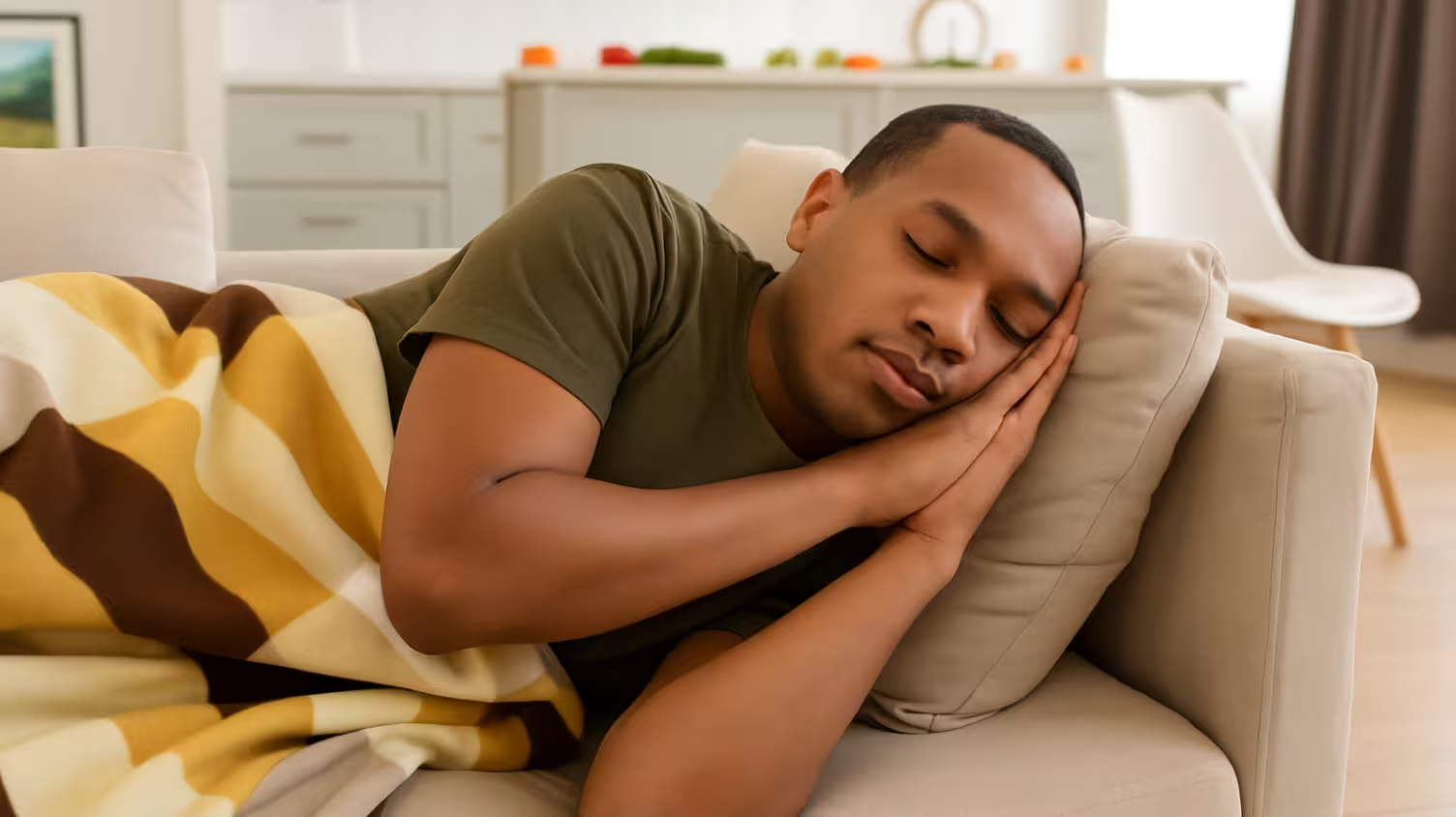Getting enough quality sleep isn’t a luxury—it’s a necessity. Yet in today’s wired and restless world, millions lie awake night after night, staring at the ceiling and counting the hours until sunrise. The truth is, our bodies are built to sleep well. But modern routines, stress, and screens have disrupted that natural process.
If you’re reaching for sleep aids more often than you’d like, know this: you can retrain your body to rest better—no pills required. Let’s walk through proven, natural ways to improve your sleep and wake up truly refreshed.
Table of contents
Why Sleep Matters More Than You Think
Sleep isn’t just about “feeling rested.” While you’re out cold, your body is actually doing its most important work:
- Repairing cells
- Balancing hormones
- Clearing brain fog
- Boosting immunity
Skipping deep rest night after night can take a serious toll on both your mind and body—leading to low energy, poor focus, and even increased risk of heart disease or depression.
1. Build a Solid Sleep Routine
Your body loves rhythm. When you go to bed and wake up at the same time daily—even on weekends—it syncs with your internal clock. This rhythm makes it easier to fall asleep quickly and stay asleep longer.
Try this:
- Set an exact bedtime and stick to it for two weeks.
- Wake up at the same time daily, even if the night before was restless.
- Avoid long naps during the day. If you must nap, keep it under 30 minutes.
2. Create a Bedroom That Works For You
A noisy, bright, or cluttered bedroom can silently sabotage your sleep. Your environment should make you feel calm and safe—not stimulated.
Small upgrades that make a big difference:
- Use blackout curtains or an eye mask to block light.
- Keep the room cool—around 65°F (18°C) is ideal for most.
- Ditch screens 30–60 minutes before bed. Blue light tells your brain to stay awake.
Bonus: Try adding calming scents like lavender or chamomile. Your nose plays a bigger role in relaxation than you might think.
3. Use Light to Your Advantage
Your sleep cycle is influenced by light exposure. Bright light in the morning helps you feel alert, while dim light at night encourages melatonin—the sleep hormone—to kick in.
How to reset your internal clock:
- Step outside early in the morning, even for 5–10 minutes.
- Turn off overhead lights an hour before bed.
- Use warm, dim lighting in the evening—think lamps, not ceiling bulbs.
4. Wind Down, Don’t Crash
You wouldn’t expect your phone to go from 100% use to “off” in one second—and your body’s no different. You need time to transition from day mode to rest mode.
Build a simple wind-down routine:
- Do light stretches or take a warm shower.
- Read a physical book or listen to quiet music.
- Write down your thoughts to clear a busy mind.
This helps signal to your brain that the day is ending—and it’s time to rest.
5. Eat and Drink Smart in the Evening
What you consume after 7 p.m. can directly impact how well you sleep. Caffeine is a known culprit, but heavy meals, alcohol, and even too much water can disrupt your rest.
Evening tips:
- Avoid caffeine after 2 p.m.
- Skip spicy, rich, or sugary meals within 3 hours of bedtime.
- If you get hungry late, stick to light snacks like bananas, almonds, or oats.
6. Calm the Mental Noise
Anxiety and racing thoughts are among the top reasons people can’t fall asleep. While you can’t turn off your mind completely, there are ways to quiet it down.
Grounding techniques to try:
- Box breathing (inhale 4 counts, hold 4, exhale 4, hold 4)
- Journaling 3–5 things you’re grateful for
- Listening to ambient sounds like rain or ocean waves
This encourages your nervous system to shift from “fight or flight” to “rest and digest.”
7. Know When to Get Out of Bed
Ironically, lying in bed too long can train your brain to associate the bedroom with frustration instead of rest.
If you’re awake for more than 20 minutes:
- Get up, go to a different room, and do something quiet like reading.
- Return only when you feel sleepy again.
This maintains a strong mental link between your bed and sleep—not stress.
Better sleep doesn’t start in your bed—it starts with your habits. While pills might offer short-term fixes, sustainable rest comes from how you treat your mind and body around the clock.
Small changes add up. A darker room. A regular bedtime. Less screen time. These may seem simple, but they re-teach your body to do what it already knows: how to rest well.
Trust the process, and give it time. Your body is on your side—it just needs the right conditions to drift off naturally.






1 thought on “The Power of Sleep: How to Improve Rest Without Pills”
Comments are closed.